#thule society
Text
Vampyr Headcanons
I figured that today of all days would be a good one to share my Vampyr headcanons. Be warned; I’m tying this to over to another favorite game of mine.
Having only Embraced those whose life was about to end (Dr. Edgar Swansea) or whose continued existence would harm others (Clay Cox, Edwina Cox, Father Tobias Whitaker, Seymour Fishburn, Venus Crossley, and Carolyn Price), Jonathan is able to convince Elizabeth to not take her own life. He immediately begins research on finding a way to completely purify her of the Blood of Hate.
Old Bridget takes care of their needs, bringing them supplies at scheduled intervals. At times, she will act as Elizabeth’s companion while Jonathan goes to visit his aging mother. After her death and funeral, which he is present at, he stays at the castle full-time, looking for the cure. His family’s butler, Avery Cork, comes with to serve and aid the last living Reid.
After over twenty years of hard work, he finds it at long last. After administering the cure, Jonathan, Elizabeth, and Avery wait with bated breath as he tests her blood for the Blood of Hate. To their eternal joy, the test comes back negative.
They return to London to find it much changed: The city has recovered from the Great War, from the Spanish Flu, and from the Skal Epidemic, and is flourishing. They make contact with their old friends and acquaintances from during the Epidemic.
For example, Charlotte Ashbury is overjoyed to reunite with her mother. Things have gone well for her cause; the fight for women’s rights and the equality between men and women has made great strides throughout the 1920s and ‘30s in the United Kingdom.
At the Pembroke Hospital, Dr. Waverly Ackroyd has become its administrator. He isn’t too happy to see Dr. Reid after he disappeared into the blue. He has done well, both for himself and as the administrator of Pembroke, though, and Reid is happy for him on that account.
Others have turned darker. Albert Palmer has risen through the ranks of the Wet Boot Boys, becoming their leader, and he is arguably worse than Clay or Edwina ever were.
Sadly, others have died in their absence. Darius Petrescu and Enid Gillingham have both died of old age. Both Rodney Grader and Archer Woodbead were brutally murdered, and Albert Palmer is the prime suspect.
Much to Jonathan’s annoyance and displeasure, he learns that a second Great War has begun. Only a couple of months earlier, the “Allied” troops were driven out of Europe and forced to evacuate in the “Miracle at Dunkirk”.
Jonathan and Elizabeth’s return couldn’t have been worse timed, as a few days after their arrival, the German Luftwaffe begins bombing London in what would become known as the “Blitz”. Jonathan Reid returns to the medical field as he begins working at Pembroke again with the influx of bombing victims.
A few months later, Geoffrey McCullum walks into Pembroke. During Dr. Reid’s absence, McCullum has softened his stance upon vampires, seeing as he has become one. When his status as a “Leech” was discovered, it created a new schism within the Guard of Priwen. Those loyal to McCullum joined him in creating a new faction, which rejoined with the Brotherhood of St. Paul’s Stole. Those who wished to kill him and continue indiscriminately killing vampires continued on as the Guard of Priwen.
McCullum is here to recruit Dr. Reid into the Brotherhood. As it turns out, the Nazis have their own counterpart to the Brotherhood, the “Thule Society”. Their goal is to uncover and weaponize various occult artifacts against the Allies, and their most effective tools are Ekons. A good number of Nazi officers, especially within the SS, are Ekons themselves.
There is a good chance that the Thule Society will try to cause another Disaster, such as the one that Dr. Reid stopped. As a powerful Ekon who has experience fighting other Ekons and stopping Disasters, Jonathan is a prime candidate to be inducted into the Brotherhood, which is currently working with the Allies.
Elizabeth is against it, but she ultimately concedes. She and Jonathan part ways as he goes to once again fight for King and Country.
Between fighting German soldiers and vampires, and Embracing targets, Dr. Reid begins realizing the potential he denied him during the Epidemic. He soon finds himself catching up with McCullum, and then surpassing him, which is only right as his Vampiric parent.
Without a doubt, Jonathan hates the Nazi doctors in the concentration camps more than even the members of the Thule Society. They are a mockery of everything he has ever valued; they don’t deserved to be called “Doctor”. They are nothing more than sadistic butchers with scalpels instead of cleavers, and he Embraces them without hesitation.
After the end of the Second World War, and after having stopped the Disaster that the Thule Society attempted to trigger, Jonathan returns to London and reunites with Elizabeth. They begin to travel, having long been confined by necessity and by duty.
Later in the ‘40s, an American tycoon tracks them down with an offer. He asks Jonathan to come and join a new society he is building, one “where the scientist would not be bound by petty morality”. This is the wrong message, as Jonathan cares greatly about the “petty morality” that this man so greatly despises. When Jonathan tells him about the cures he gave away for free during the Epidemic, the man leaves quickly, leaving behind a few choice words about altruism.
In early 1967, Geoffrey McCullum comes across a helmeted, suited figure attempting to make off with a child from the Docks. The fight with it is intense, as it is strong, fast, and can throw fireballs from its hand. After losing several good men, and nearly being set on fire, McCullum succeeds in bringing it down.
Taking off the helmet gives him one hell of a shock: It’s a teenage girl by the looks of it. She’s extremely tall for her apparent age, and very frail despite her perceived strength. Something’s not right about her, and McCullum knows just the man to find out what.
Thankfully, Dr. Jonathan Reid happens to be in London, and McCullum wastes no time sending for him. What Reid finds is... disturbing.
For a start, the girl has been mutated. Her blood is much like a Skal’s, the cells unstable, yet the mutations are very different. The powers that McCullum and his men reported about are very different from anything that an Ekon or any other kind of vampire is capable of, and in fact they’re very lethal to vampires (Fireball + Ekon = Dead Ekon).
Besides the unusual height or the mono-color eyes (which reportedly glowed while she was alive), the oddest thing about her is a tumor of sorts on her stomach. It’s not like stomach cancer, like her own cells turning cancerous; this looks like it was something else originally, and then was grafted onto her stomach. Its cells are the most unstable and mutated in her entire body. Reid is at a loss as to where she came from or what she is.
Later, Jonathan and Elizabeth notice more and more reports of little girls being kidnapped in coastal towns and cities on both sides of the Atlantic. Remembering that the “Diver” was trying to take a child, they begin looking further into these incidents. They learn of an American named Mark Meltzer who has been drawing the same conclusions as they are in his own investigations. They decide that it’s high time they pay the States a visit again.
After arriving in the US, they just miss Meltzer before he leaves the country. After figuring out where he’s headed, they follow after him, coming to a spot off the coast of Iceland. They arrive just in time to see Meltzer’s boat attacked by monstrous creatures that emerge from surfacing spherical submersibles, that begin attacking their boat too.
To escape the creatures, Jonathan and Mary jump into the water and make it to one of the submersibles, hijacking it and setting it to take them back underwater. They are amazed when they see the sphere’s destination: A city resting on the sea floor. Jonathan is amazed further when he sees a statue bearing the visage of one Andrew Ryan, the very same man who came to him with his offer over twenty years earlier.
Andrew Ryan’s city of “Rapture” is real indeed.
Thoughts?
#vampyr#bioshock#dr. jonathan reid#elizabeth ashbury#jonathan x elizabeth#geoffrey mccullum#andrew ryan#world war 1#spanish flu#world war 2#thule society#bioshock 2#video games#crossover#headcanons#this ties into my bioshock sinking city crossover as well
12 notes
·
View notes
Text
The Church of Vrilology, Vril, Hitler and the Hollow Earth - Historic Mysteries
We here at this blog, in no way, advocate the practice of Nazism. We also DO NOT, in any way, advocate, or agree with, anti-Semitism of ANY kind. We will not tolerate ANY such language in the comment section. Your comment(s) will be promptly deleted.
Author’s Note: We here at this blog, in no way, advocate the practice of Nazism. We also DO NOT, in any way, advocate, or agree with, anti-Semitism of ANY kind. We will not tolerate ANY such language in the comment section. Your comment(s) will be promptly deleted. Hate speech of any kind toward any race, religion, creed, or sexual orientation will not be…
View On WordPress
#1871#Antarctica#Argentina#Aryan Race#Atlantis#Biblical Flood#Church of Vrilology#Dark Matter#Deluge#Edward Bulwer Lytton#England#Germany#HG Wells#Hitler#Hollow Earth#Indo-European#Jules Verne#New Jersey#Nikola Tesla#Thule Society#UFOs/UAPs#US Secret Service#Vril#World War II
1 note
·
View note
Link
Policy by astrology
#Germany#Third Reich#occult#esotericism#superstition#delusion#Thule Society#astrology#dowsing#clairvoyance#sceances#border science
1 note
·
View note
Text
youtube
So this is the video that so far has been the least fun to make. In this video, I discuss the Volkish movement and other occultic movements in Germany and how the Nazis used them and their ideas to help take power. If you're easily disturbed you might want to skip this one folks.
0 notes
Text
The Butcher
Episode Recap #45: The Butcher
Original Airdate: April 29, 1989
Starring:
John D. LeMay as Ryan Dallion (credit only)
Louise Robey as Micki Foster (credit only)
Chris Wiggins as Jack Marshak
Guest cast:
Nigel Bennett as Rausch / Karl Steiner
Julius Harris as Simpson
John Gilbert as Shaw
Colin Fox as Horst Mueller
Robert McKenna as Voll
Les Rubie as Lefty Cook
Sherry Miller as Interviewer
Barry Stevens as Detective
Tom Masek as Warden
David Blacker as Young Jack
Charles Woods Gray as Bartender (as Charles Gray)
Bill Vibert as German Soldier
Written by Francis Delia and Ron Magid
Directed by Francis Delia
Somewhere, men are breaking a chain to open a door. The men are speaking German and are opening a sealed morgue-like room that is in a deep freeze. The open a drawer containing the frozen body of a Nazi, and one of the men, Mueller, calls the body the new Fuhrer, saying he should have succeeded Hitler.
Later, they slowly thaw the man and his throat wound begins to bleed. Mueller holds up an amulet and chants, asking for the body to be given life. The dead man awakens and kills Mueller's associate. Mueller then places the amulet around the resurrected man's neck, and tells him once he has killed all his enemies, they will have the future Hitler had promised, a thousand year Reich.
A black and white flashback takes us to WWII, and we see the torture they inflicted on others. One of them approaches a young Jack Marshak, tied to a chair.
Current day Jack awakens from a nightmare, holding his throat.
Cut to another old man, a big baseball fan, playing solitaire. A knock on his door has him wheel himself to answer. The man at the door asks if he is Mr. Cook, which he is, then says he is a wartime friend of Jack's. Cook lets him in, and comments that the man doesn't look old enough to be a wartime ally. The man comments on a photo and Cook says it is his battalion, and that they caught a Nazi scientist, Mueller. Cook says they should have killed Mueller. As Cook reminisces, the man comes up behind him and chokes him with barbed wire. We see it i the resurrected Nazi.
At Curious Goods, Jack is surprised at the arrival of two other old war buddies, Shaw and Simpson. The men embrace, then lament the reason for their reunion: Lefty Cook's funeral, which Jack says he won't be attending. His friends tell Jack they are getting old and all they can do is see that they get buried right.
The three men make a toast to Lefty at his coffin. Jack wonders why someone would kill their friend and Shaw says another friend, Carruthers, was also killed. Jack looks at Cook's neck and sees the wound.
Later, at a bar, the three men are drinking and holding a small wake for Cook. Jack gets off the phone and joins them and says the Veteran's Administration says two others, Evanovich and LaRue are also dead, and Jack wants to know if they were also murdered. Jack says The Butcher used to kill using barbed wire. Simpson says The Butcher is dead. Jack tells them about his nightmare.
Jack and Shaw stumble into Curious Goods, and Shaw insists on staying. Jack sends him to Micki's room, saying the cousins are out of town.
Elsewhere, Mueller is putting and X on the faces of those he has killed through the resurrected Butcher. He then circles Simpson's face.
Another flashback, and we see Jack held at gunpoint, and Mueller and The Butcher torturing him and his friends. Shaw rushes to wake Jack from his nightmare.
Next morning, Jack gets a delivery from the V.A. Shaw wakes as Jack reads that Evanovich and LaRue were killed in Europe, and were strangled like the others. Shaw is incredulous, but says Mueller is still in jail and that The Butcher, Rausch, is dead. Jack isn't so sure. He says Mueller was experimenting with cryogenic freezing, and maybe he had time to freeze Rausch. Shaw doesn't believe it, or that anyone is back from the dead. Jack, with his experience, isn't so sure.
On a radio show, Rausch is posing as Karl Steiner, the host of a controversial show with Nazi-leanings. He says he is just telling the truth as a reporter interviews him. She asks about his past, but he wants to talk the future. She says people are talking about him entering politics. Rausch hears Mueller in his head pushing him to continue their plan, then feels fresh blood from his hidden neck wound. He takes off, but not before saying some more Nazi-like sentiments to the reporter.
In the bathroom, he bleeds, then pulls out his barbed wire to kill a stranger, but Mueller in his head stops him. Rausch fondles the amulet. Mueller tells him to kill only their enemies and then says he knows where Simpson is. Rausch struggles in pain.
Jack tries to convince Shaw that Mueller and The Butcher are targeting them somehow. Jack opens a locked box he has keep closed since the war. He pulls out Mueller's diary, with a page showing a drawing of the amulet. Jack says it is a symbol of the Thule Society, an ancient group of alchemists and warlocks. Jack believes this is how Mueller brought Rausch back. Shaw is still a non-believer. Jack picks up the phone to call Simpson.
We cut to Simpson getting into his car. The radio is playing a rebroadcast of Rausch's Steiner-hosted radio show. Suddenly, Rausch pops up from the backseat and chokes Simpson with his barbed wire garrote, killing him.
Jack and Shaw are up late, waiting on Simpson to arrive, and worried that he's so late. The phone rings. Jack and Shaw are at the crime scene and the cop says he thinks Simpson was killed with piano wire. Jack says it was barbed wire.
Mueller, in his cell, crosses out Simpson's face and says soon it will be Jack's turn.
Jack is reading up on the Thule Society, trying to convince a still skeptical Shaw. Jack says Rausch would have been the ideal subject for Mueller to freeze. Shaw asks if Mueller has this amulet and Jack thinks so. Jack calls overseas to speak to the warden of the prison holding Mueller.
Rausch as Steiner is listening to a recording of his callers as Mueller again enters his thoughts, telling him that once he kills Jack he will have eternal life. But that they have something to do before than happens.
Jack speaks to the warden, who says if Jack wants to speak to Mueller, he will have to go there, prisoners are not allowed phone calls. Jack says he will be on the next flight. The warden then tells Jack that about a year ago, Mueller did escape, but was recaptured the next day.
Later, Jack is packed and ready to go, but Shaw says he is staying put, with no intention of setting foot in Germany again. Jack worries for his safety, but Shaw says he won't be caught unaware. Jack gives him a gun and ammo from his old war chest, then heads off.
In West Berlin, Jack arrives at the military prison. The guard checks his paperwork. Jack waits and dozes off. In his cell, Mueller again holds his part of the amulet. Jack remembers the siege that helped liberate him and his group, and that he choked Rausch with his barbed wire. Jack reawakens in a panic, and grabs the phone to check on Shaw.
In the USA, Shaw goes to answer the phone at Curious Goods when Rausch pops up from behind the counter and strangles him with the barbed wire, killing him. Jack's call goes unanswered.
Jack is brought to meet with Mueller, who says he was expecting him. Mueller says he is halfway around the world when Jack accuses him, then says The Butcher is dead. Mueller taunts Jack, telling him Shaw is already dead, and relishes Jack's anguish. He says he saved Jack for last, then tosses him the other half of the amulet. He says Rausch is waiting for him. Jack leaves as Mueller rants.
Back at Curious Goods, Jack finds Shaw's body and cries over the last of his wartime friends. Next to Shaw is the magazine he was reading that shows a photo of Karl Stiener, aka The Butcher, and Jack recognizes him.
At the radio station, Rausch continues to get calls from people sympathetic to his horrific ideas. Then he gets a call from Jack, speaking German, and telling him he has what he wants and calling him Butcher. Rausch ends his show, saying it is his last broadcast, since he is entering politics, and continues to goad the gullible listeners.
At the store, Jack awaits Rausch's arrival, recalling his old war buddies. He loads his gun, checks his knife, gets his shotgun. Then he sits and waits. The lack of sleep weighs on him and he dozes. Again he dreams of that night in WWII. Suddenly, Rausch kicks the door in, Jack shoots towards him but misses. Then Rausch searches for Jack, telling him to give him the amulet half. Jack moves slowly, but Rausch wraps the wire around Jack's wrist, causing Jack to drop the gun before he can shoot. Jack drops the amulet piece, and Rausch goes to it, putting the two amulet pieces together. Jack gets his gun and shoots at Rausch, even dead center of his forehead, but it does nothing. Rausch stands again, barbed wire in hand.
Rausch again searches the store for Jack, but this time, Jack reaches through the stair railing and wraps wire around Rausch's neck, holding him in place. Jack then cuts the amulet free from around Rausch's neck and the man chokes, bleeds and dies.
Later, Jack is looking at the photo of him and his troop. He hears their voices. He puts the photo in the chest. He holds the amulet and hears Mueller's voice. He puts it back into the chest, locks it, then places the whole thing inside the vault and closes it. He wearily heads up the stairs.
My thoughts:
Love that we get an episode that is centered on Jack, and that we learn about a big part of his past, and see some of his old friends.
Dark stuff, though. Horrors of war and the Nazis are never easy to watch, for me or anyone, I would imagine. We some horrific stuff just barely in Jack's flashbacks, and we know the truth was just so much worse.
Also sad to be rewatching this in 2022, and feel like their are people NOW who would be parroting the callers on Rausch's racist radio show. Sad and insane.
Feel bad for Jack, losing so many friends in such a short amount of time. He truly suffers, and their is no Micki or Ryan to comfort him at the end. Locking the amulet in the vault makes sense, but putting it is war chest and locking it ALL in the Vault seems more like Jack want to keep himself safe from all of his war memories. Sad, but makes a weird sense.
Wonder if Jack disposed of Rausch's body on his own. I can't imagine him explaining any of that to the cops, especially if Rausch was so popular as Stiener.
Also have to wonder how irate and ranting Mueller was in his prison cell when he learned his plan didn't succeed in the end, and Jack survived.
Next week: Mesmer's Bauble
#chris wiggins#jack marshak#curious goods#season two#episode recap#war#nazi#germany#wwII#amulet#thule society#80s tv
0 notes
Text
my background story for my himbo lizard boy wol has always been fairly vague and mostly along the lines of: he grew up in thavnair, his family were fishers who made him learn to fish even though he preferred fighting things, he attempted to fish by just jumping in the water and wrestling fish, and then a giant fish kicked his ass so hard he left home on a journey to grow into a better fighter so he could come back and get revenge (he never did. he got thancred to beat up the fish for him and now it lives in an aquarium in his house)
but I was thinking of elpis and the wol being told to relate the whole story from the beginning to the elpis squad and like...this boy cannot stay focused on a long story like that, he doesn't have a single braincell, if you tell him to relate the story from the beginning he's gonna go way too far back and spend half an hour complaining about the fish that beat him up back home
and there's hythlodaeus in the corner quietly making notes about this fascinating fish. notes he will find in his pocket after he returns home and turn into a concept leading to the creation of the fish ancestor of the wol's nemesis. the circle of stupidity is complete
other things that probably happened in elpis:
1) the wol almost definitely made some vague comment to hermes that hermes then recalled later as he looked down at meteion and inspired his decision to destroy the world. the comment would have been something you'd expect to find on one of those awful motivational posters that has some trite phrase over a stock photo of the ocean
2) the wol asked venat "have you ever wondered what the ancients really are?" (he probably read a conspiracy theory on tumblr) but he had a brain slip (without the brain part) and said "have you ever sundered what the ancients really are?" and venat was like hmmm while taking notes
3) wol told emet he looked "out of shape" and "not at 110%" in the future and offered to teach him his exercise routine. this would have happened in the middle of him relating how emet was going to have everyone he knew die and then murder millions of people. hyth prevented another murder from taking place but also took notes on the exercise routine and later built a home gym based on them. azem used it regularly. emet threatened to divorce both of them. soon after, emet unmade azem's favorite barbell in a fit of pettiness leading to them squabbling, a fight which started out serious and then drifted into more mundane topics like should we summon zodiark. azem took his gym and left
4) grani bit the wol. this didn't have any far-reaching consequences but it made him sad and he wants you to know
the legend himself:

#ffxivmp#mp#himbo lizard boy tag#he is...the most stupidest boy in the world...dos equis#big of heart and dumb of ass#he was just trying to help#if the wol had stayed in the ancient world hyth would have hired him immediately#and with their powers combined they would have caused the fall of society before meteion had a chance#ffxiv#just occurred to me that the wol complaining about the fish is like emet ranting about venat in ultima thule#the poor kid is really emet's spiritual successor in that specific way#'i was personally victimized by a fish/venat'
36 notes
·
View notes
Text
torn between making ve-corpsis an isolated island (potential fun to be had with island syndrome and the way that would effect the wildlife in terms of less biodiversity+island gigantism/dwarfism) or making it a massive rainforest (humidity would better suit the drakes and theres a lot to be done with the Massive amounts of biodiversity+the idea of drakes having to compete w that). coughs
#the great failing of dronic society is pride. the moment they run into vennettes+humans they start claiming superiority due to their--#--seeming relation to thule and expend a TON of energy + resources in order to project a facade of complete power despite--#--the absolute shitfest of their internal politics (entirely new species created by thule themself appearing the day they first make--#--nonviolent contact w the other sophants and the two time culling of their upper courts due to failed ascension attempts primarily)--#--and that kind of falls in line with the idea that ve-corpsis is not a very dangerous place for them a la the isolated island. them--#--having no Real predators throughout the course of their evolution (both biological + societal) and thus freaking the hell out the instant#--True competition comes into the picture. but on the other hand the super biodiverse rainforest gives them a different--#--angle of them having faced + still facing adversity on the home front that exaggerates their response to perceived outside--#--threats. would also open up potential for more drake subspecies filling in different ecological niches as opposed to the 3 main ones--#--ive got thought out for the isolated island#they are both pretty heavy handed metaphors i think its just which one i want to go for LOL the first is more in line with other--#--alamanni stuff going on like the frontierists and ayala but the second gives them a more 'sympathetic' angle (cannot think--#--of the exact word for that. you arent meant to sympathize w them but it humanizes them ? maybe that)
2 notes
·
View notes
Note
dez frank and vince in thule how they farin?
this is hilarious cuz thule is basically a “utopian” quasi-fantasy/surrealist world set in its 1950s so desmond and francis would just be regular kids at school (school is compulsory so francis wouldn’t be able to needle her way out of it) (francis would also still be a delinquent/troublemaker but Better in some ways) while Vincent would kinda be. just a jobless bum??? IN A WAY LMFAO, just kinda hangs around doing nothing going nowhere cuz Jeratzya sorta provides everything its citizens need for FREE (it’s a moneyless society u get free food clothes and housing etc) so she’d just be chilling really. still doing drugs probably but not to such an extent as in SE
francis and vince would still be sisters and their relationship is overall better? but francis would be embarrassed abt vincent i think and would be afraid to end up like her. desmond is honest to god just trying to survive the shit francis drags him into (breaking into radioactive abandoned missile silos and graffitiing the local military recruitment center etc) but i think he’d be happier in many ways cuz he wouldn’t be living with his dad
#kudzu responds#oc talk#thule is utopian but not perfect#it’s societies all have its own problems still but it’s marginally better than the ones we have
5 notes
·
View notes
Text
speaking of uncharted i have some knowledge of the comics and the single book and man uh
hollow earth is real and so was the minotaur. there are in fact multiple minotaurs and it's kind of like indiana Jones and the fate of atlantis in that they were mutated humans, but instead of being the result of attempting to replicate alien technology its a side effect of something called the "hidden word", a concoction created from an incredibly rare strain of white hellebore that renders all who drink it completely docile and obedient to the first person who speaks to them and also occasionally turns them into minotaurs. also daedalus knew how to make it and was a con man who tricked kings into thinking he was an alchemist who could guard their treasures in a magical labyrinth, and after it was made and the treasure in place he'd feed these idiots the hidden word, convince them to stay in the labyrinth, and walked away w all their money and he did it three times before he died
#the side media got weird#the hollow earth stuff is from the seach for the original panels from the amber room bc somehow they ended up in agartha#which is a place made up for a book but somehow the fucking thule society convinced themselves it was real so#anyways theres a giant wall of diamonds holding back a lava flow that lit up the city like a sun and was in fact called the second sun
3 notes
·
View notes
Note
Imagine, if you will, that you were on your way to a time traveler’s convention with every historical occultist you have ever read about, but in your way there something fucked up and you ended up stranded on a rock in the middle of the Pacific Ocean. There are no plants on this rock, but there is a book that contains a ritual that will allow you to conjure everything necessary to create one gigantic meal. However, the ritual requires a human sacrifice, who will become the meat of the main course. You have an inexplicable knowledge that if you do not complete the ritual you will all starve on the island before help will arrive.
Which occultist are you killing and eating?
You gotta remember that a small percentage of occultists were literally Nazis. Like card-carrying members of the German Nazi party. And they would be very outnumbered by all the Jewish occultists throughout history.
I think you would have to physically stop most of the 20th century occultists from killing the Thule Society with their bare hands.
This is also a bit of a cop-out answer. Of course you kill the Nazis.
I'm gonna vote we kill Erich von Daniken. We don't need the ancient aliens people. This is also assuming that Battaille doesn't volunteer to be sacrificed as a sex thing.
571 notes
·
View notes
Text
The Church of Vrilology, Vril, Hitler and the Hollow Earth - Historic Mysteries
https://www.historicmysteries.com/church-of-vrilology/
View On WordPress
#Antarctica#Argentina#Aryans#Berlin#Church of Virlolgy#Edward Bulwer Lytton#Hitler#Hollow Earth#Nazis#New Jersey#Thule Society#Vril
0 notes
Link
Hitlerian Halloween
#Nazi#occult#border science#psychological operations#Thule Society#esotericism#social control#superstition#books
1 note
·
View note
Text
y'shtola and urianger are suuuuch effective foils for each other, whenever i want to think about one i compare the other and i go Ohhhh and then i become The Comprehender. like for example, in shadowbringers, y'shtola goes to the nights blessed, far from more industrial society - a culture with deep and intricate spiritual beliefs that arose after the flood (an interpretation of light and dark that is a folk belief rather than the establishment's), along with a proximity to distantly ancient ruins for her explore. meanwhile urianger goes to the bookman's shelves, full of books from just before the flood from the established civilizations of the first, seeking to learn more from those more recent establishment scholars. which falls in line with y'shtola being a field agent while urianger stayed in the waking sands basement
y'shtola left behind established sources of knowledge to seek out her own - master matoya, distrustful and disdainful of the state authority that will not tell her the whole truth, goes to live in a far off cave. urianger does not - he tends to bend more easily to others' will (minfilia, the exarch, etc) (enabler! enabler!!). urianger has a character arc where he grows out of that, fully shrugging it off after the exarch's plans fail. in endwalker he's basically always out in the field instead of in sharlayan or at the rising stones - the most similar he is to his early self is electing to stay on the moon, which really reveals more about how he has learned to reach out and connect with others and extend compassion + understanding.
and it is really brought out in ultima thule, where y'shtola stands in defiance to an "authority" on truth and knowledge, declaring that she wants to discover knowledge on her own and for herself, and urianger's sacrifice is all about how supportive he is of his friends. i cry.
yshtola doesn't have (/hasn't yet had...?) a character arc where she has to grow and change - she's extremely secure in herself. i think dawntrail, which seems to be all about forging ahead to new things, has potential for more stuff for her - here's hoping!
tl;dr the secret to understanding them is that they are caster dps vs healer
191 notes
·
View notes
Text
The potential of "Better-er In Black" Stories
7/10 - classic, too basic maybe💁🏼♀️ OR MAYBE CASSIE you can simply do your "author" magic, bring Thule Clace back to life so Janus can stop terrorizing local kids, thanks in advance

8.5/10 - drama💅style👑epic, the whole package story, I approve
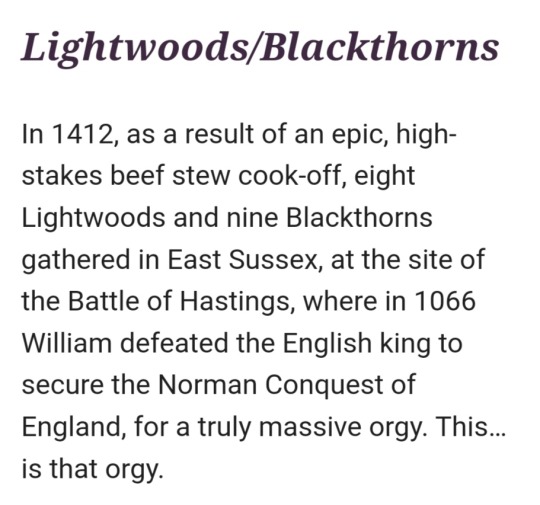
8.5/10 - it seems she just forgot to add this one to Bane's Chronicles, it was supposed to be there. Magnus met way more exciting people tho, that's why it's just 8 乁༼☯‿☯✿༽ㄏ Try harder Abraham
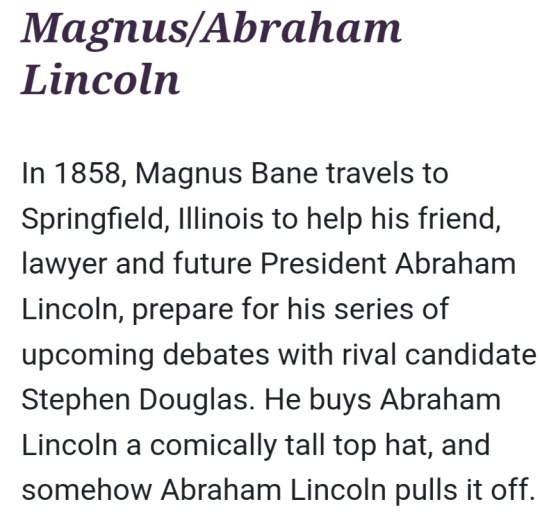
9/10 - maybe I don't deserve it, maybe I didn't ask for it and maybe the society isn't ready for such concept BUT WE ALL NEED IT, THE NATURE WILL HEAL, HUMANITY WILL RISE🏋♀️✨🌱

6/10 - old perverts' party? Real life is full of that already, let's leave this one behind the scene🤚
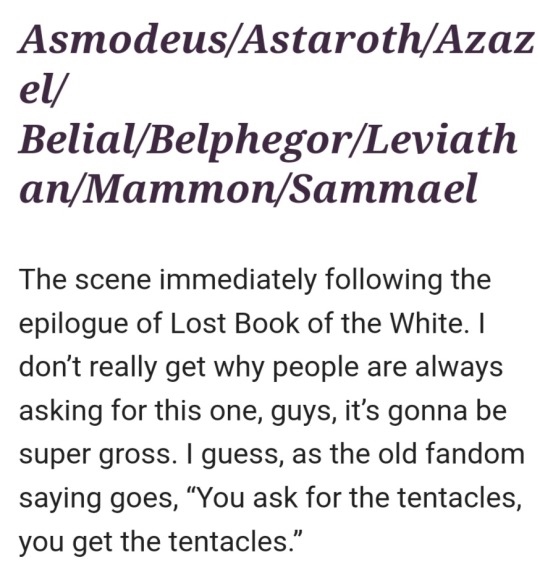
-1/10 and 5 years in jail for a potential crime, 10/10 for the confidence, risk and potential slay💅

8/10 - if this love triangle is not the plot of Luke/Jocelyn story in Better in Black... I throw this shit out of the window, I don't need it😤 no one is risking these days WE COULD HAVE GOTTEN AT LEAST SOMETHING!!!
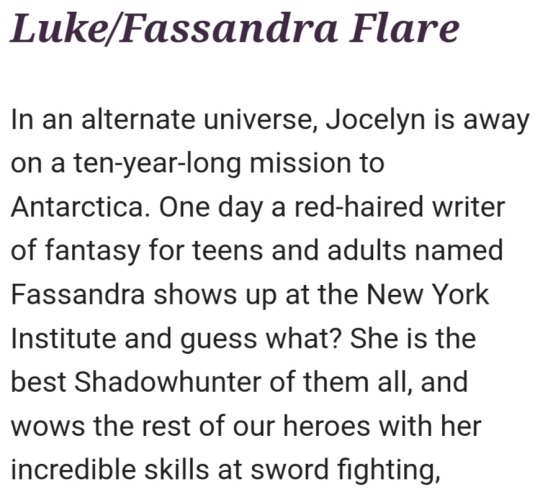
It's Cassie's cat isn't it? -20/10 for nepotism, 6/10 for creativity😼

8/10 - IT'S ON WATTPAD, IT'S ON WATTPAD, I'VE SEEN IT ON WATTPAD I DID, CASSIE DO YOU HAVE WATTPAD ACCOUNT, WHAT IF U DO

9/10 - THEY FUCKED, I SWEAR TO GOD THEY DID, IT WAS NASTY AND THEY'VE BROKEN DOWN THE BED
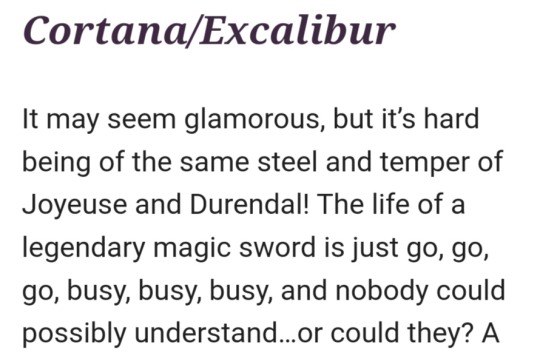
RAGNOR VS BATMAN
I can't attach more than 10pics so...
12/10 - swag? Done✅ drama? Done✅ the elegance? Right here✅ passive aggression and sad puppy eyes? Served ✅
What more can you ask for?
#better in black#seasons of shadowhunters#twp#tlh#tmi#tda#tsc#cassandra clare#clary fairchild#magnus bane#rachel amber#simon lovelace#isabelle lightwood
44 notes
·
View notes
Text
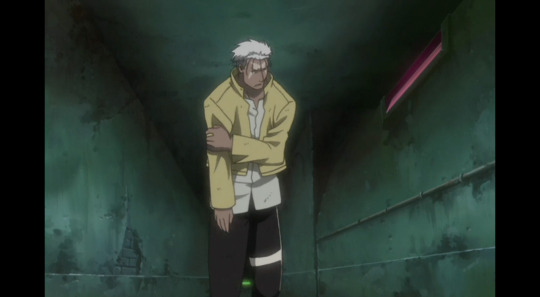
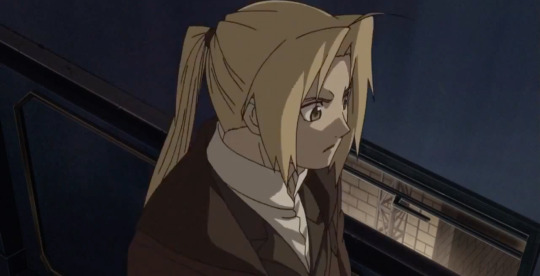
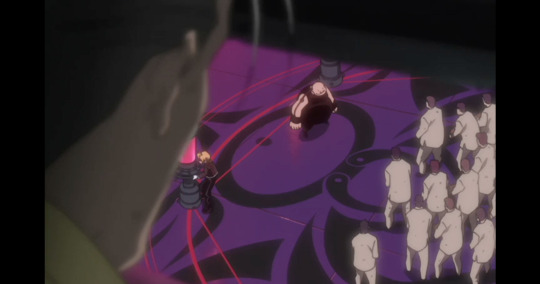

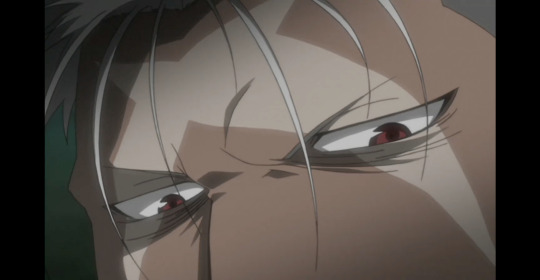
i was watching COS and look at these parallels between scar (in lab 5) and ed (in the thule society)
interesting how in 03 the scene is scar realizing what ed has been complicit in, and in COS it's ed realizing what alphons has been complicit in.
#SAME WINDOW and similar plot of both of them just chill-ly breaking into a facility and walking around learning things#fma03#edward elric#scar fma#fma 03#fma#fullmetal alchemist 2003
121 notes
·
View notes
Text
Nuremberg Defendants: Part 1, Alfred Rosenberg - Nazi Philosopher




I've created a new goal for 2024, which is to make posts about the defendants of the Nuremberg Trials. For the sake of the fact that there are already many Tumblr blogs that talk about specific figures from the trials, I won't be making these sort of posts for Göring or Speer. I made one for Hess a couple of months ago in response to an ask I received, which I will link here. These posts will be related to the lesser-talked-about defendants that stood trial and the first of these (because I'll be posting this on his birthday) will be Alfred Rosenberg.
-Alfred Ernst Rosenberg was born on the 12th of January 1893 in Reval (now Talinn), Estonia. His parents died when he was still fairly young and was raised mostly by his two parental aunts.
-What we know about Rosenberg's early life is very limited to what he wrote in his memoirs at Nuremberg. However, what we do know is that he had an elder brother called 'Janny', whose date of death is unknown (he had been arrested by the Soviets). From around his mid-teens he became interested in philosophy. We also know that some of his hobbies included sailing in the summer and ice skating in the winter, and that his nickname given to him by family (or at least referred to by his niece in letters) was 'Freddy'.
-Rosenberg had studied to be an architect and obtained his PhD in 1917. At his stays at home in Estonia he worked as a drawing teacher.
-Rosenberg spent the years of the First World War as a student. He had volunteered to serve in the army but was rejected on the grounds of his nationality. After the revolution in Russia, Rosenberg fled to Munich where he was taken in by Dietrich Eckart.
-Rosenberg had planned to continue with his career in architecture in Munich, but had eventually started working for the far-right newspaper 'Völkischer Beobachter' (English: People's Observer). This paper was sponsored by the Thule Society, a group that which Rosenberg was a member of (and adding onto this, Rosenberg was one of the very first to join the Nazi Party). In 1923 Rosenberg became editor-in-chief of the newspaper.
-Rosenberg, like all of the early members of the party, took part in the Beer Hall Putsch in 1923. Rosenberg had escaped from police and took refuge in the home of an old lady. After the Putsch, Hitler had named Rosenberg as leader of the Nazi movement. This was a tactical move made by Hitler, as Rosenberg was regarded as lazy and was not as dominant as other members of the movement (such as Julius Streicher - who I will be making a post on in the future). Hitler knew that there was no chance of Rosenberg completely taking control of the whole movement, which therefore secured Hitler's leadership, which was restored to him after being released from prison.
-Also in 1923, Rosenberg obtained a divorce from his first wife, Hilda Leesman. Hr married her in 1915, however she was often sick and never followed Rosenberg to Germany. Rosenberg presented himself as the guilty party when obtaining a divorce. His first wife died in 1928 from tuberculosis. Rosenberg married his second wife, Hedwig Kramer, in 1925 and the marriage lasted until Rosenberg's death. Together they had two children: a son that died in infancy, and a daughter, Irene, born in 1930.
-Rosenberg was also often the victim of numerous rumours. For example:
A common rumour was that Rosenberg was in fact Jewish. His last name obviously didn't help with these rumours. He also didn't put in much effort to clarifying his ethnic background (but this was to keep the rest of his family - occupied by the Soviets - safe).
A rumour spread mostly by Hermann Göring was that Rosenberg had been working as a French spy during World War 1.
Another rumour was that he had an “unsavoury romantic life” which included him attending orgies of both men and women. This was a rumour spread by Ernst Hanfstaengl. Hanfstaengl gives no source for this, however he is also incredibly biased against Rosenberg so we can also assume that this was made up.
-Rosenberg is most well-known for his book “The Myth of the 20th Century”. This book shows us his ideas of National Socialist philosophy, a form of National Socialism which he later claimed was never truly realised. The Myth sold around 1 million copies by the end of the Second World War. The book at the time was not translated into any other languages, as per Rosenberg's request, although a refined version was written by Rosenberg for use in schools (however Rosenberg personally disagreed with this too, believing it was for the youth themselves to develop their own ideas). It's also interesting that Hitler personally disliked The Myth. He claimed that it was something that ordinary people would not understand and made digs at Rosenberg's Baltic background.
-An important part of Rosenberg's ideology was his fierce anti-Christianity, especially in regards to the Catholic Church. Rosenberg himself was raised Protestant but believed there to be no need for Christianity, and also believed that Christianity was gradually dying out.
-Upon the Nazi's coming to power, Rosenberg's primary role was related to being the party's chief ideologist. This role undoubtedly had its limits. A specific example was the amount of real influence he had over schools. Rosenberg had no direct influence over schools and other party officials made sure that he could not intervene in schools. His desired plans for 'Hohe Schule' eventually had to be abandoned.
-In the Second World War, Rosenberg was given a big role, being made Reichsminister für die besetzten Ostgebiete (English: Reich Minister for the Eastern Occupied Territories) after Germany had made successful advances in the East. However, once again, Rosenberg's role was limited. He was constantly blocked by other party members (including Reichsmarschall Hermann Göring, Minister for Occupied Ukraine Erich Koch, Hitler's private secretary Martin Bormann, as well as constant battle over authority with foreign minister Joachim von Ribbentrop).
-Rosenberg's position on the governance of the Eastern Territories was different to that of Erich Koch. Where Koch saw dictatorial opportunities in Ukraine, Rosenberg saw an opportunity to break up the USSR and allow for self-governance of the eventual newly-created states.
-Rosenberg was personally horrified by the treatment of Slavic peoples during the war and there are moments in which he intervened (as best as he could). There is no evidence that he intervened on behalf of Jews, but Dr Otto Bräutigam recorded an occasion where Rosenberg condemned 'wild excesses' against Jews in Russia (however this does not mean that his opinions on Jews and anti-semitism had suddenly changed, they did not). Rosenberg had a principle that some ethnic groups were 'more deserving' than others, and this basis had saved lives of prisoners of war by getting separate camps set up for them and sending out inspectors to tour them. Although Rosenberg's motives were often not clear, his interventions were usually on the side of sanity and in some cases humanity.
-After the failures of Stalingrad and when territory in the East began to erode, Rosenberg's role as Minister for the Occupied Eastern Territories became increasingly meaningless. Only in 1944 did Rosenberg pluck up the courage to send a letter of resignation to Hitler, however Hitler did not bother to respond to this letter. It's suggested that if Rosenberg had resigned in 1943 (as advised by the staff that worked under him), it's likely that he would have been spared by the hangman's noose.
-Prior to his capture in May 1945, Rosenberg had considered committing suicide along with the rest of his family to avoid capture by the Russians. He had acquired enough cyanide for himself, his wife and his daughter. However, Rosenberg had a change of heart, apparently throwing the cyanide into the sea at Flensburg (according to his Nuremberg memoirs). After this Rosenberg had sprained his ankle (throughout adulthood he always had problems with his foot) and had to be taken to a military hospital where Rosenberg then gave himself up to the Allies. Albert Speer claims that Rosenberg was drunk when he sprained his ankle, however Speer was not present nor did he provide a source for this information. Rosenberg claims that he was not drunk but had to be carried.
-In the Nuremberg Trials Rosenberg was defended by Dr Alfred Thoma. Rosenberg's examinations by the prosecutors at Nuremberg are fairly awkward. For example, the Russian prosecutor M. Y. Raginsky gave a description of Rosenberg's authorisation of the removal to the Reich in 1944 of 40,000 homeless Russian orphans (this is something I will refer back to again shortly), but the prosecutor fell silent when Rosenberg alleged that a similar number of adults had been deported to the USSR in 1940 from the states of Latvia and Estonia. US prosecutors also had their awkward moments, for example Thomas Dodd who heatedly accused Rosenberg of persecuting religion.
-Coming back to my mention of the removal of Russian orphans to the Reich: although Rosenberg could not deny that he authorised the removal, to Rosenberg's credit he could maintain that he had cared of the wellbeing of the children and had visited the camp near Dessau. Dr. Thoma insisted that Rosenberg took charge of them at the personal request of Field-Marshall von Kluge, who feared that they would otherwise fall into the hands of Fritz Sauckel. There is also confusion of the numbers involved. The Russian prosecutor alleged 40,000 orphans; whereas Dr. Thoma admitted to 20,000. However, expert opinion now suggests that the real figure was somewhere between 2,500 to 3,000 orphans.
-Rosenberg followed trial proceedings very closely whenever it concerned him personally. On several occasions while being examined but the Russians, he tried to intervene to check the the translation, which he claimed to be distorting what he had said. Whenever he wasn't being examined, he tended to lose interest and spent his time making pencil sketches of witnesses.
-Although Dr. Thoma did his best, Rosenberg's defence was handicapped for a number of reasons. One of the main reasons was that documents and witnesses were provided at the indulgence of the prosecution. Rosenberg had tried to call a witness to testify on behalf of his work in German-English relations, however there was o response. Another reason is that Rosenberg himself gave complicated answers when being examined, so much so that even Dr. Thoma had asked him to be more concise.
-Rosenberg was found guilty on all four counts of the indictment of the tribunal and was sentenced to death by hanging. Upon the scaffold when asked if he had any last words Rosenberg said “no”, being the only criminal condemned to the gallows to have no last words. Rosenberg was hung in the early hours of October 16th, 1946.
37 notes
·
View notes